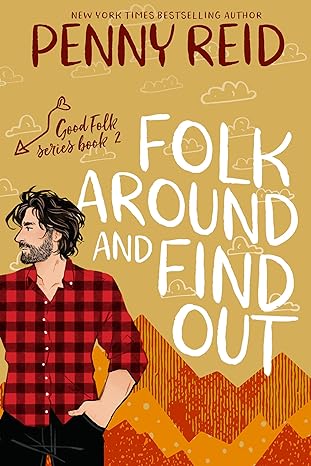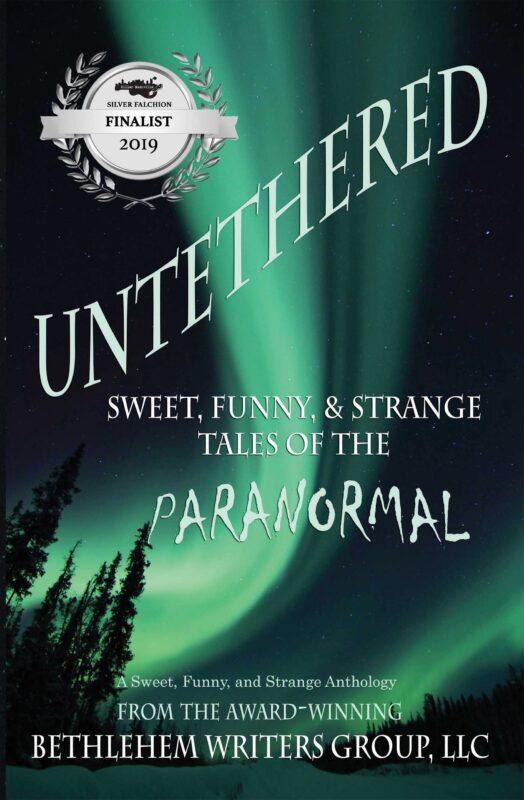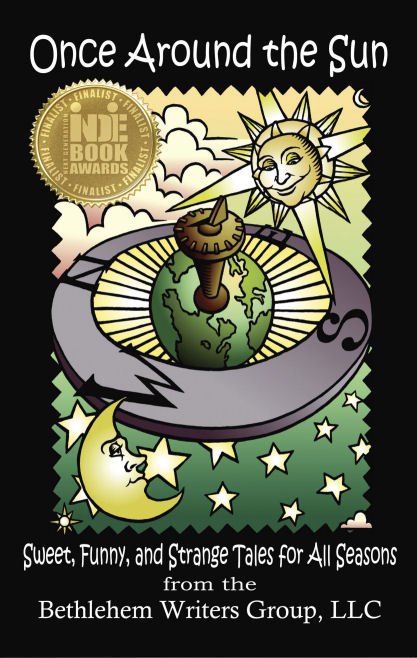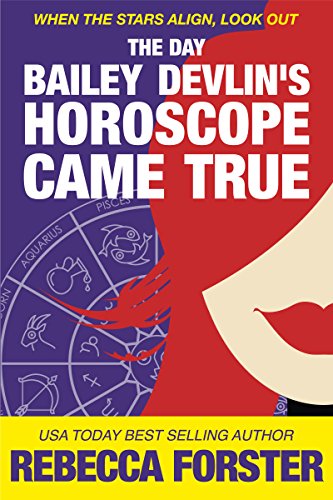It’s Worth It
March 9, 2008 by A Slice of Orange in category Archives tagged as It's Worth ItMANNA TIME
By Kitty Bucholtz
Whenever I hear or see the same thing three or more times in a short period of time, I have a tendency to stop and say, “God, are you talking to me?†I always joke with him that I can be stubborn and hard of hearing but if I see something repeated, I promise to stop and at least ask if he’s trying to get my attention. I had this experience last month.
I’d been reading about the Israelites and how God provided manna for them to eat in the desert. The same topic came up in a sermon and in bible study within two weeks. I started thinking about it, wondering if there was a reason I was hearing about it so many times in a short period. I’d been praying for help in keeping my writing schedule as my first priority without losing control of everything else. What did the Israelites have to do with that?
Writing in my journal, I figured out the answer. The Israelites had to get up early every morning before the dew dried up and gather the manna from the ground. No sleeping in or being lazy. If you didn’t feel like getting it on Tuesday, you didn’t eat on Tuesday. The manna was going to be provided every day, but it wasn’t going to just show up on their plates. The Israelites knew in a general sense that God had promised to take care of them, but now they had to form that into a daily, practical trust and obedience.
My general goal of putting my writing first so that I can create a writing career is a good and noble one. But the fact is I wasn’t making it happen. The day I figured that out in my journal was the beginning of a change in my writing. I began starting each day writing “morning pages†(from The Artist’s Way) and pushing myself to “verbalize†all my hopes and fears about life in general and that day in particular.
I wrote about the guilt I felt putting my writing in front of getting my taxes done, and in front of other commitments. I wrote down the hundred things I thought I had to do, and realized that many of them could be put off one more day, reminding myself that I only needed to get that day’s writing done. I found that – just like Julia Cameron promises – getting everything else out of my head, recognizing it and moving on, opened up my writing!
Not only was I suddenly writing for four and five hour stretches, but the writing was far more productive, efficient, fun, and just good! I am amazed at how quickly the writing improved and the joy returned. And strangely, the other items on my to do list were surviving the wait. Some got done in the nooks and crannies of time my writing used to occupy. Some got picked up by friends and family. Some are still waiting.
I’m always amazed and sometimes embarrassed when God shows me he cares about the things that are important to me. But I’m extremely grateful! Now I start each day with the morning pages, and move right into the novel writing. My head is fresh and clear of “trash†and it shows in the writing. I laughingly tell God I’m now living in “Manna Time†– every day focusing just on what needs to be done that day, or if I’m particularly stressed, what needs to be done in that hour. Sometimes I hear MC Hammer’s theme song “Hammer Time†in my head. That’s when I know I got my quirky sense of humor from my Maker. In any case, I’ve found a successful new way to write – and it’s worth it!

Kitty Bucholtz writes romantic comedies because, well, she lives one! She wrote her first book in the NBC cafeteria, the second snowed in at a Reno hotel, and the third from a tiny apartment in Sydney. Even though she loves talking about, writing about, and teaching about writing, she’s pretty sure she knows at least three people who aren’t writers.
It’s Worth It
February 9, 2008 by A Slice of Orange in category Archives tagged as It's Worth ItMAKING LISTS
by Kitty Bucholtz
When I was thinking about my column this month, I couldn’t think of one single thing to write about. Some days I’m so happy with life, that niggling guilt that’s always in the back of my mind when I’m not working – well, it just goes away! And today, I couldn’t help but list all the things I’ve spent time on this week – even when I thought I should’ve been writing – that added some unexpected happiness.
Choir practice, even though I thought I was too busy to go
Talking to strangers, even when I was busy
Calling my mom, even though I was busy
Enjoying a few chapters of reading, even when I should’ve been writing
Cuddling and watching TV with my honey, even if I should’ve been working
Thanking God for future blessings, even though I can’t see them yet
Supporting a friend by walking the picket line with her, even when I’m busy
Taking a moment to enjoy the stars, even when I’m tired
The joy of telling a story, even if only to myself today
I’m sure this list isn’t complete, but you get the picture. And the thing I noticed was that my writing energy improved after each of these things! But you know, even if it hadn’t helped my writing, some things in life are just worth it.

Kitty Bucholtz writes romantic comedies because, well, she lives one! She wrote her first book in the NBC cafeteria, the second snowed in at a Reno hotel, and the third from a tiny apartment in Sydney. Even though she loves talking about, writing about, and teaching about writing, she’s pretty sure she knows at least three people who aren’t writers.
It’s Worth It
January 10, 2008 by A Slice of Orange in category Archives tagged as It's Worth ItROUND TWO
by Kitty Bucholtz
Okay, this has never happened before – three months in a row of writing on the same topic! Shows you how passionate I am, I guess!
So here’s the thing. People are talking about resolutions every January, and that’s fine, but I don’t need any new ones. I just want to keep up with the great writing habits I’ve been forming over 2007. Christmas vacation hampered my efforts, so I was quite willing when a friend said, “Why don’t we do that NaNo thing again in January?â€
Within days, fourteen of our friends showed interest in creating a “challenge†group that posted goals and daily accomplishments. I created a new Yahoo Group and an Excel spreadsheet with a graph, and we were off and running.
The main hurdle was that while many were at a place where they were ready to start a new book January 1, many others were brainstorming or editing. So we came up with a point system. For instance, for every scene fully edited, you get 1000 points. For each blog posted on your neglected author web site, you get 200 points. For brainstorming out an entire novel’s premise, you get 1500 points. And of course, you get 1 point for every “new†word written as well.
It’s subjective, and each author gets to decide their goals and the points they believe they should earn. That’s fine because we aren’t competing against each other, but against our January 2007 selves. The goal is to do more than you did last month or last year. And boy, is it working!
One friend whose first book will be published soon, and is contracted for five more, made his goal to be 15,000 new words for the month. In the first three days, he wrote 4267 words! He said he’d never written so many words in three days before!
Many have posted to the group things like, “I only wrote 343 words today. I didn’t ‘have time’ to write at all, but knowing you all were writing spurred me on to do at least something.â€
I personally replied to one of those emails saying, “Thank goodness someone wrote only a few words! It’s 5:15pm and I haven’t written anything today, but I know I can write 344 words! Thanks for ‘challenging’ me!â€
Today is January 9th, and we should be 29% of the way to our goal. I’m less than 10% of the way there, but call me Seabiscuit. Apparently, I have to see that people are “beating†me in order to come up from behind! I’ve spent many hours creating and managing the group, hours that I could’ve spent writing. But I’m still getting more writing done than I otherwise would have. And I’m encouraging – and being encouraged by – my writing friends to kick off our new year of writing with a big bang. I say, it’s worth it!

Kitty Bucholtz writes romantic comedies because, well, she lives one! She wrote her first book in the NBC cafeteria, the second snowed in at a Reno hotel, and the third from a tiny apartment in Sydney. Even though she loves talking about, writing about, and teaching about writing, she’s pretty sure she knows at least three people who aren’t writers.
It’s Worth It
December 9, 2007 by A Slice of Orange in category Archives tagged as It's Worth ItMISSION ACCOMPLISHED
By Kitty Bucholtz
Oh Joy! Oh Rapture! I won!
Remember I told you last month that I would participate in NaNoWriMo? The goal was 50,000 words in 30 days. At the beginning of the month, I felt it was a doable goal – 1667 words per day. By Thanksgiving, I wasn’t so sure. I was barely over the 17,000 mark and thousands of words behind.
But I had two things going for me. One, I desperately needed to create some new and improved writing habits, so I had it in my heart and mind to do whatever it would take to “win†this competition. (Everyone who hits the mark, wins. Essentially, you’re competing against yourself.)
Second, my two critique partners also participated and were equally motivated. We had a conference call twice a week for encouragement, accountability, and brainstorming. We sent emails saying we hit 10,000 words, 20,000 words, or had a breakthrough idea.
In the last five days I wrote 30,711 words. That’s about 123 pages. In my wildest dreams I never would have believed I could do that! I simply decided not to stop typing. I woke up in the morning, kissed my husband goodbye, asked God to help me focus, and started typing. I would look at my word count and think – another thousand words and I’ll be at the next 10,000 word mark. Or – another hundred words and I’ll beat Stephanie for the day. (grin) I heard the voice of Dorie, the blue fish in Finding Nemo, singing, “Just keep typing, just keep typing.â€
I won a lot more than a competition. (I stopped at about 6pm on the last day with 52,415 words.) I developed some key new habits. I found better ways to get work done, things I never would’ve tried if I hadn’t been willing to try anything to win the competition. And perhaps most importantly, I learned what I can do.
That first weekend after NaNo ended, my brain was a jumble. I tried to remember whether I had paid the rent. My friends at church asked why I wasn’t my usual talkative self. I told them, “I used up all my words in my book!†They laughed and congratulated me.
By the next Tuesday, I was eagerly working on my book again, making notes, moving scenes around. By Thursday, I could see that if I deliberately chose to not let my new habits slip, I could keep up a far higher degree of productivity. On Friday, during our conference call, my critique partners and I started brainstorming a new idea for our budding web site. We decided that we needed to encourage other writers with ideas on how to keep writing. We are beyond excited about our plans!
Participating in NaNo was hard work. Friends and family were kindly told to wait until December. I snuck into another room on Thanksgiving Day to write for a while. Chores and errands were put off. My to do list on December 1 was terrifyingly long. But I have new habits that are pushing me to the next level in my writing. So I say – it’s worth it!

Kitty Bucholtz writes romantic comedies because, well, she lives one! She wrote her first book in the NBC cafeteria, the second snowed in at a Reno hotel, and the third from a tiny apartment in Sydney. Even though she loves talking about, writing about, and teaching about writing, she’s pretty sure she knows at least three people who aren’t writers.
It’s Worth It
November 9, 2007 by A Slice of Orange in category Archives tagged as It's Worth ItBy Kitty Bucholtz
Some days I can hardly wait to start writing. Last night I was writing right up until my husband turned out the lights. Other days I really need…something. So this month I decided to try participating in NaNoWriMo – National Novel Writing Month (www.nanowrimo.org). With close to 100,000 people around the world writing their little hearts out to get 50,000 words down in 30 days, I figured that kind of motivation could be just the kick I need right now.
I’ve been writing for about a week and wow, what a week it’s been. Two full days were devoted to out of town guests. Nearly two more days had to be spent doing some “life stuff” that couldn’t be rescheduled. Yet I’ve still gotten nearly 7,000 words down, most of which would not have been written this week if it weren’t for my competitive streak and NaNoWriMo’s artificial daily goals.
Even though I’m behind schedule, I’m still excited! My November calendar is crowded with visits from family, an online class, and a usually-coveted four-day holiday weekend. Writing is work that constantly makes you choose between your writing goal and one of the numerous other things you’d love (or need!) to do. But I’ve found a joyful place inside where I can live and work, a place with magic and monsters and heroes and romance. I can’t live there without effort, but I say, it’s worth it!

Kitty Bucholtz writes romantic comedies because, well, she lives one! She wrote her first book in the NBC cafeteria, the second snowed in at a Reno hotel, and the third from a tiny apartment in Sydney. Even though she loves talking about, writing about, and teaching about writing, she’s pretty sure she knows at least three people who aren’t writers.
Affiliate Links
A Slice of Orange is an affiliate with some of the booksellers listed on this website, including Barnes & Nobel, Books A Million, iBooks, Kobo, and Smashwords. This means A Slice of Orange may earn a small advertising fee from sales made through the links used on this website. There are reminders of these affiliate links on the pages for individual books.
Search A Slice of Orange
Find a Column
Archives
Featured Books
A CHRISTMAS CITY CHRISTMAS
Will they have a normal Christmas? Probably not.
More info →UNTETHERED: SWEET, FUNNY, AND STRANGE TALES OF THE PARANORMAL
Stoke the campfire and get ready for some chills and goosebumps when you open this paranormal addition to the award-winning Bethlehem Writers Group's "Sweet, Funny, and Strange" anthologies.
More info →ONCE AROUND THE SUN: Sweet, Funny, and Stranges Tales for All Seasons
Stories about winter, spring, summer and fall, and seasons of life, seasons of love, and even seasons of discovery.
More info →THE DAY BAILEY DEVLIN’S HOROSCOPE CAME TRUE
Oh, boy! Oh, Bailey! What are you going to do when Fate decides to have a little fun?
More info →Newsletter
Contributing Authors
Search A Slice of Orange
Find a Column
Archives
Authors in the Bookstore
- A. E. Decker
- A. J. Scudiere
- A.J. Sidransky
- A.M. Roark
- Abby Collette
- Alanna Lucus
- Albert Marrin
- Alice Duncan
- Alina K. Field
- Alison Green Myers
- Andi Lawrencovna
- Andrew C Raiford
- Angela Pryce
- Aviva Vaughn
- Barbara Ankrum
- Bethlehem Writers Group, LLC
- Carol L. Wright
- Celeste Barclay
- Christina Alexandra
- Christopher D. Ochs
- Claire Davon
- Claire Naden
- Courtnee Turner Hoyle
- Courtney Annicchiarico
- D. Lieber
- Daniel V. Meier Jr.
- Debra Dixon
- Debra H. Goldstein
- Debra Holland
- Dee Ann Palmer
- Denise M. Colby
- Diane Benefiel
- Diane Sismour
- Dianna Sinovic
- DT Krippene
- E.B. Dawson
- Emilie Dallaire
- Emily Brightwell
- Emily PW Murphy
- Fae Rowen
- Faith L. Justice
- Frances Amati
- Geralyn Corcillo
- Glynnis Campbell
- Greg Jolley
- H. O. Charles
- Jaclyn Roché
- Jacqueline Diamond
- Janet Lynn and Will Zeilinger
- Jaya Mehta
- Jeannine Atkins
- Jeff Baird
- Jenna Barwin
- Jenne Kern
- Jennifer D. Bokal
- Jennifer Lyon
- Jerome W. McFadden
- Jill Piscitello
- Jina Bacarr
- Jo A. Hiestand
- Jodi Bogert
- Jolina Petersheim
- Jonathan Maberry
- Joy Allyson
- Judy Duarte
- Justin Murphy
- Justine Davis
- Kat Martin
- Kidd Wadsworth
- Kitty Bucholtz
- Kristy Tate
- Larry Deibert
- Larry Hamilton
- Laura Drake
- Laurie Stevens
- Leslie Knowles
- Li-Ying Lundquist
- Linda Carroll-Bradd
- Linda Lappin
- Linda McLaughlin
- Linda O. Johnston
- Lisa Preston
- Lolo Paige
- Loran Holt
- Lynette M. Burrows
- Lyssa Kay Adams
- Madeline Ash
- Margarita Engle
- Marguerite Quantaine
- Marianne H. Donley
- Mary Castillo
- Maureen Klovers
- Megan Haskell
- Melanie Waterbury
- Melisa Rivero
- Melissa Chambers
- Melodie Winawer
- Meriam Wilhelm
- Mikel J. Wilson
- Mindy Neff
- Monica McCabe
- Nancy Brashear
- Neetu Malik
- Nikki Prince
- Once Upon Anthologies
- Paula Gail Benson
- Penny Reid
- Peter J Barbour
- Priscilla Oliveras
- R. H. Kohno
- Rachel Hailey
- Ralph Hieb
- Ramcy Diek
- Ransom Stephens
- Rebecca Forster
- Renae Wrich
- Roxy Matthews
- Ryder Hunte Clancy
- Sally Paradysz
- Sheila Colón-Bagley
- Simone de Muñoz
- Sophie Barnes
- Susan Kaye Quinn
- Susan Lynn Meyer
- Susan Squires
- T. D. Fox
- Tara C. Allred
- Tara Lain
- Tari Lynn Jewett
- Terri Osburn
- Tracy Reed
- Vera Jane Cook
- Vicki Crum
- Writing Something Romantic
Affiliate Links
A Slice of Orange is an affiliate with some of the booksellers listed on this website, including Barnes & Nobel, Books A Million, iBooks, Kobo, and Smashwords. This means A Slice of Orange may earn a small advertising fee from sales made through the links used on this website. There are reminders of these affiliate links on the pages for individual books.









































